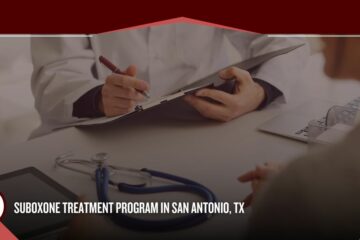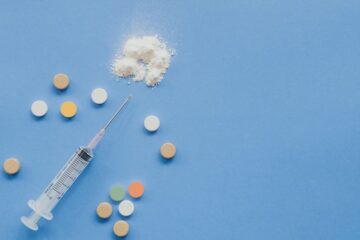In the journey toward overcoming addiction, the pivotal role of physical health and recovery capital cannot be overstated. This dynamic link between physical well-being and the resources available for recovery forms a crucial foundation for achieving favorable outcomes in the recovery process. At Alamo Behavioral Health, we have been operating the drug and alcohol detox center Texas trusts. Through our work, we have explored the profound connection between physical health and recovery capital across different cases of addiction. Join us today as we explore this subject and unravel a pathway to empowerment and lasting recovery.
Recovery Capital and Its Components
Initially, let us briefly define the term we will be using. “Recovery capital” refers to the collection of internal and external resources that individuals can draw upon to aid their journey of overcoming addiction and maintaining long-term recovery. This multifaceted concept encompasses various elements that play a vital role in supporting individuals through their recovery process.
The initial categorization of recovery capital types outlined 4 main ones. However, subsequent studies have identified more and now embrace the following:
- Social Capital: The network of supportive relationships, including family, friends, and peers, that provide encouragement, understanding, and a sense of belonging.
- Human Capital: Personal skills, knowledge, and attributes that empower individuals to navigate challenges, make informed decisions, and cultivate resilience.
- Physical Capital: The state of an individual’s physical health, encompassing fitness, nutrition, and overall well-being, which can contribute significantly to recovery success.
- Cultural Capital: The influence of cultural beliefs, norms, and values that shape attitudes toward recovery and can positively impact a person’s motivation and commitment.
- Community Capital: The availability of community resources, such as support groups, treatment facilities, and educational opportunities, which foster a recovery-friendly environment.
- Financial Capital: Access to financial resources that facilitate participation in treatment programs and reduce stressors associated with economic hardships during recovery.
- Psychological Capital: Mental and emotional well-being, including self-esteem, coping skills, and self-efficacy, that enhance an individual’s ability to cope with triggers and stressors.
Recognizing and harnessing these diverse components of recovery capital can empower individuals in their efforts to achieve sustained sobriety and lead fulfilling lives beyond addiction.

Physical Health and Recovery Capital
As you can see, physical health has earned its own type in the web of recovery capital forms. Indeed, it plays a pivotal role in it, significantly influencing the journey toward overcoming addiction.
Substance abuse can exact a profound toll on an individual’s physical well-being and overall health, resulting in a range of adverse effects on the body. Addressing and prioritizing physical health during the recovery process is of paramount importance as it can lead to improved energy levels, mental clarity, and emotional stability. Understandably, a sound physical foundation enables individuals to better engage with the other components of recovery capital. Enhanced physical well-being contributes to increased resilience, self-efficacy, and coping abilities, bolstering the individual’s human capital.
Additionally, better physical health fosters stronger social connections as individuals are more likely to engage in positive social activities, fortifying their social capital. Furthermore, it allows them to participate actively in community support programs and treatment, maximizing their access to community capital. Lastly, it directly improves mental health, too, as every dual diagnosis treatment Texas offers can attest to. Tending to physical health and reversing addiction’s impact on it allows the mind to heal as well, facilitating the “mind-body meld” and holistic treatment.

Physical Health Benefits in Recovery
Indeed, physical health and recovery capital share a profound connection. Physical health plays a crucial role in the realm of recovery capital, offering a multitude of benefits that greatly support the process of overcoming addiction:
- Firstly, by prioritizing physical well-being, individuals experience improved mental health and emotional well-being. Regular exercise releases endorphins, reducing stress and anxiety while promoting a positive outlook on life.
- Secondly, embracing a healthy lifestyle leads to increased energy and vitality, enabling individuals to engage more actively in their recovery journey. This newfound vigor fosters a sense of empowerment and motivation to pursue healthier habits.
- Lastly, as physical health improves, so does self-esteem and body image. Feeling stronger and healthier contributes to a positive self-perception, enhancing confidence and encouraging individuals to embrace their recovery with a renewed sense of self-worth.
All three of these benefits hold immense value, particularly for such addictions as fentanyl, which come with severe, far-reaching impacts. This is why programs for fentanyl detox in Texas increasingly prioritize physical health as a key component of holistic therapy.
In essence, nurturing physical health in the context of recovery capital not only improves the body but also uplifts the mind and spirit, paving the way for a more sustainable and fulfilling journey toward lasting sobriety.

Physical Health Practices to Enhance Recovery Capital
Having outlined the connection between physical health and recovery capital, it bears noting that ample practices can enhance it significantly. Incorporating specific physical health practices can prove immensely beneficial in the journey toward sustained sobriety and overall well-being:
- Regular Exercise and Physical Activity: Engaging in regular exercise not only improves physical health but also releases endorphins, reducing stress and promoting a positive mindset. Physical activity contributes to enhanced energy levels and increased self-confidence, bolstering an individual’s commitment to recovery.
- Balanced Nutrition and Healthy Eating Habits: Adopting a balanced diet nourishes the body with essential nutrients, supporting overall health and aiding in the recovery process. Proper nutrition can help stabilize mood, reduce cravings, and provide individuals with the mental clarity and focus needed to overcome challenges.
- Adequate Sleep and Rest: Prioritizing sufficient sleep and rest is crucial for physical and mental recovery. Restful sleep supports cognitive function, emotional regulation, and physical recovery, equipping individuals to face daily stressors and maintain resilience during the recovery journey.
Understandably, many such practices can start as early as during a program for medical detox San Antonio offers. By integrating these physical health practices into their lives, individuals can strengthen their recovery capital, enhance their physical well-being, and empower themselves with the tools needed to achieve lasting recovery success.
Integrating Physical Health into Recovery Programs
Having noted how physical health improvements can see use in treatment programs, this subject also warrants exploration. Since physical health and recovery capital share such a profound connection, integrating physical health into recovery programs is paramount. By prioritizing physical well-being, programs for drug detox San Antonio offers can facilitate a holistic approach that both addresses the addiction itself and fosters a foundation for long-term recovery success.
Implementing regular exercise regimens, such as group fitness classes or individual workout sessions, can improve physical health and stimulate the release of endorphins, promoting a positive mindset during recovery. Encouraging physically active outdoor activities, such as hiking or sports, not only aids in physical fitness but also fosters a sense of connection with nature, offering additional therapeutic benefits.

Moreover, providing education on balanced nutrition and healthy eating habits empowers individuals to nourish their bodies, bolstering overall well-being and resilience. By recognizing the vital role of physical health in the recovery journey and implementing targeted interventions, treatment providers can significantly enrich the recovery capital of their clients, paving the way for sustained sobriety and a healthier, more fulfilling life beyond addiction.
Community Support and Resources for Physical Health
With the above in mind, it also bears noting that physical health requires continuous commitment and support. For such cases as benzo detox in Texas, physical health and recovery capital hinge strongly on stable support networks.
Community support and resources play a pivotal role in enhancing physical health and boosting recovery capital for individuals on their journey to overcome addiction. Through community support, individuals gain access to a network of understanding and encouraging peers, family members, and mentors who can offer motivation and accountability in adopting healthy lifestyles. Support groups specifically tailored for those in recovery can foster a sense of belonging and provide valuable insights into maintaining physical well-being during the recovery process.
Additionally, community-based organizations and treatment centers often offer a wealth of resources to promote physical health, including access to fitness programs, yoga classes, and outdoor activities. Nutritional workshops and counseling are also available to equip individuals with the knowledge and tools needed to adopt balanced eating habits.
Moreover, some communities may offer free or low-cost health clinics, enabling regular health check-ups and medical support. By harnessing the strength of community support and utilizing available resources, individuals in recovery can significantly improve their overall well-being.
Maintaining Physical Health in Long-Term Recovery
Finally, maintaining physical health in long-term recovery is essential for individuals seeking sustained sobriety and enriching their recovery capital. Committing to ongoing improvements can ensure a flourishing, balanced lifestyle, enhancing individuals’ physical health and recovery capital.

Aftercare programs are essential for such pursuits. They can serve as invaluable resources for individuals in long-term recovery, providing continued guidance and support. Open communication channels with addiction treatment providers allow for ongoing discussions about physical health goals, challenges, and progress. Utilizing the insights and expertise of treatment professionals empowers individuals to address any health-related concerns effectively. Moreover, aftercare programs may offer access to support groups or fitness classes, reinforcing the importance of physical health in recovery.
Build Recovery Capital with Alamo Behavioral Health
The profound connection between physical health and recovery capital cannot be overstated. Emphasizing the significance of physical well-being in the recovery journey can lead to improved recovery outcomes and foster sustained sobriety. Alamo Behavioral Health recognizes the vital role of physical health in enhancing recovery capital and achieving lasting results. Throughout our programs, we prioritize the integration of physical health practices, providing resources, support, and guidance to empower individuals on their path to recovery. If you’d like to know more about us or our services and programs, please feel free to contact us today.




